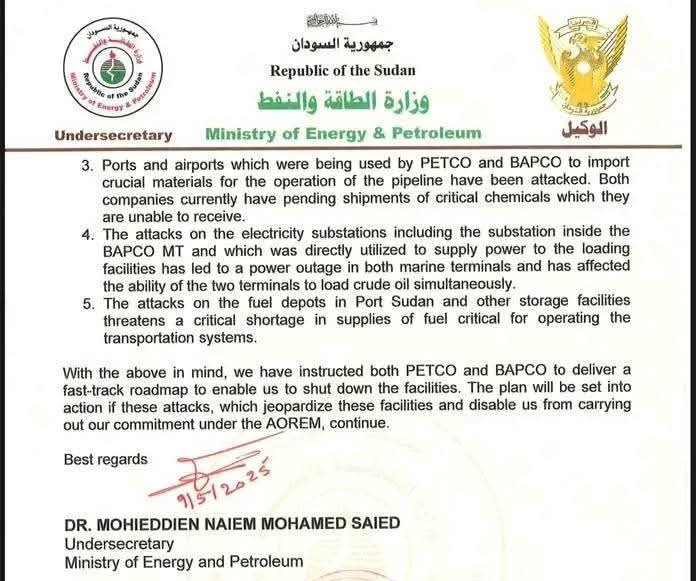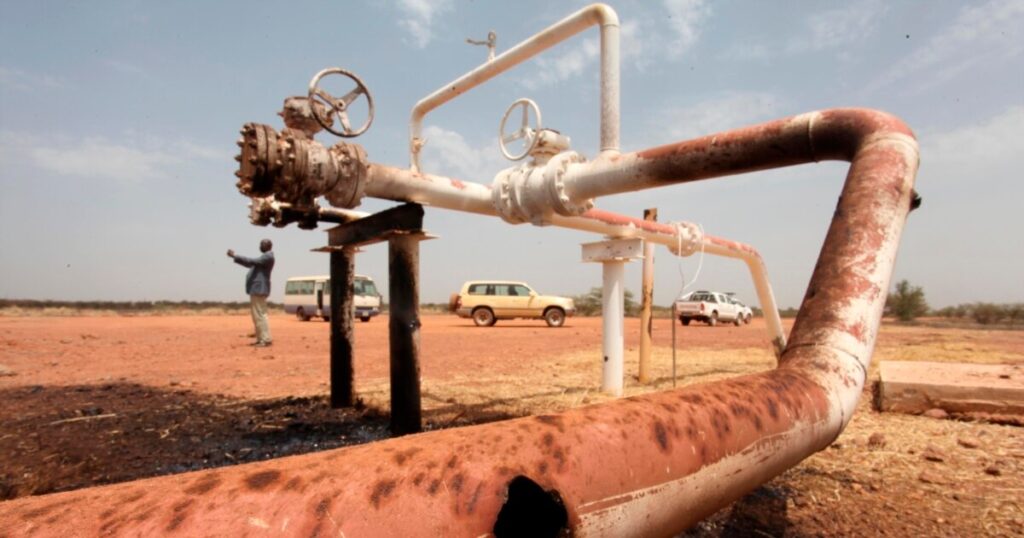Sudan’s army-aligned government has ordered energy companies to prepare for a possible shutdown of oil exports from neighboring South Sudan after a series of attacks on key facilities, according to a government letter seen by Radio Tamazuj.
In the letter dated Friday, Sudan’s Energy and Petroleum Ministry informed South Sudan’s government that the risk of halting export operations is “very high” following drone strikes it blamed on the paramilitary Rapid Support Forces.
A critical pump station and fuel depot in army-controlled areas were hit this week, the ministry said, as the RSF has increasingly targeted government infrastructure, disrupting electricity and fuel supplies.
The conflict between Sudan’s military and the RSF, which began in April 2023, has killed tens of thousands, displaced 13 million people and destabilized parts of East Africa.
Landlocked South Sudan relies on Sudan to export its crude oil, shipping it through Port Sudan on the Red Sea in exchange for transit fees. Exports had only recently resumed after nearly a year of suspension due to pipeline damage from earlier fighting.

According reports, the current oil flow stands at about 110,000 barrels per day. But after the latest attacks, Sudan’s government instructed oil firms to draft shutdown plans.
“If these attacks continue, jeopardizing the facilities and hindering our commitments, the plan will be activated,” the ministry’s letter stated, according to a copy obtained by Radio Tamazuj on Saturday.
South Sudanese officials did not immediately comment.
Last Tuesday, activist Edmund Yakani urged South Sudan’s government to clarify the impact of the Port Sudan strikes, warning they could severely disrupt oil shipments.
“The people of South Sudan need to know what is happening to their crude oil,” he said.
Last year’s export suspension badly damaged South Sudan’s economy, which depends on oil revenue. The country retained about 75% of Sudan’s oil reserves when it gained independence in 2011.
The crisis comes amid political tensions in South Sudan, where Oil Minister Puot Kang Chuol — an ally of detained First Vice President Riek Machar — was arrested in March. The move reflects the ongoing rivalry between President Salva Kiir and Machar, threatening a fragile 2018 peace deal.




